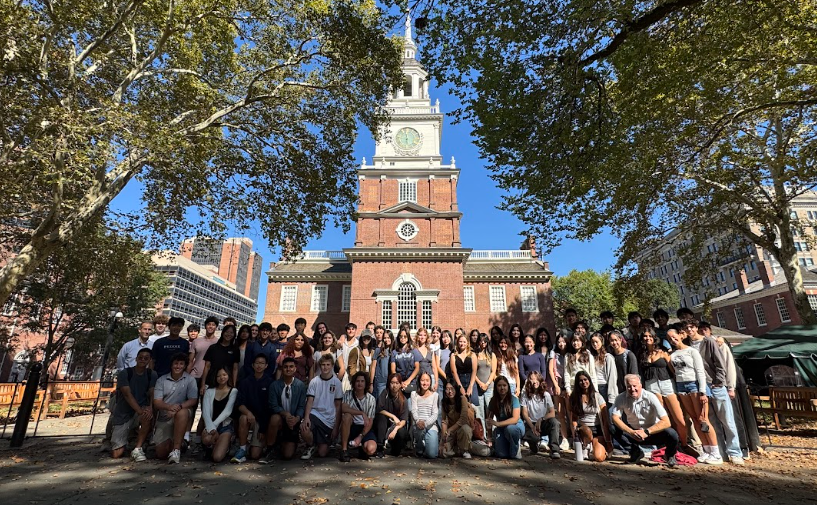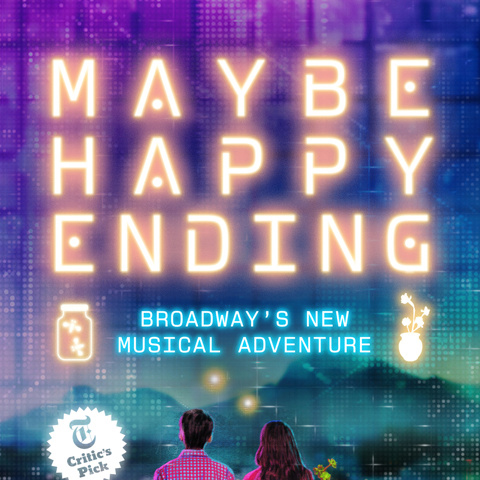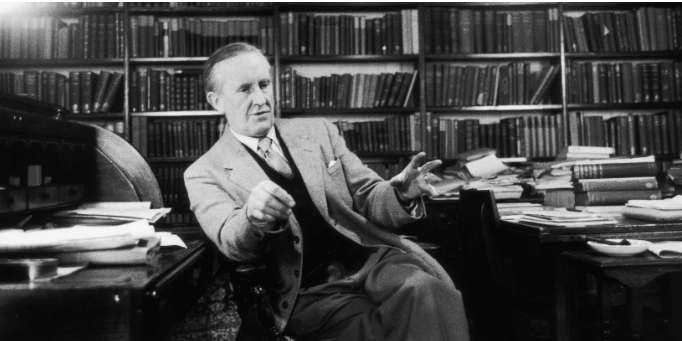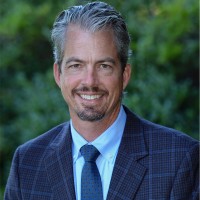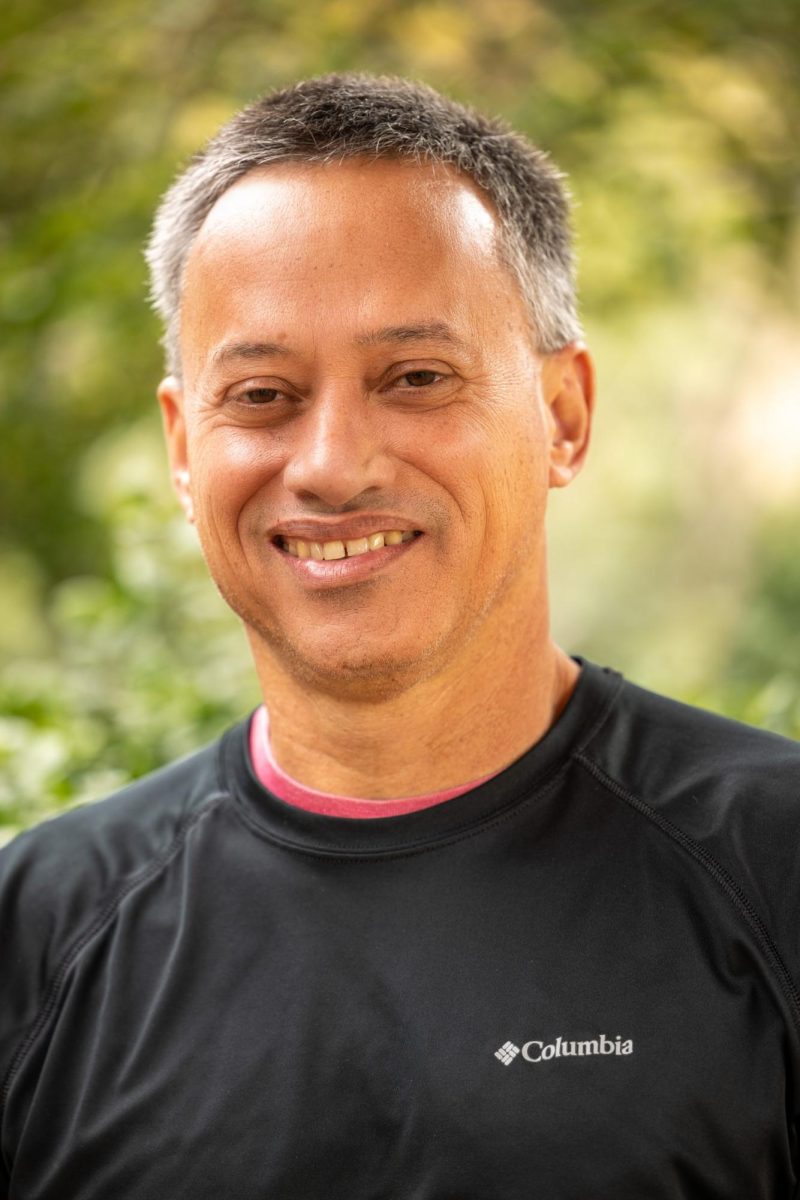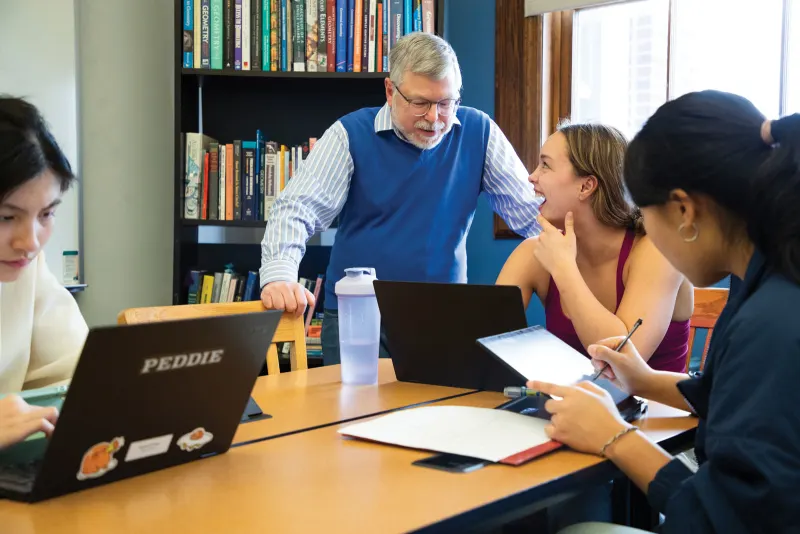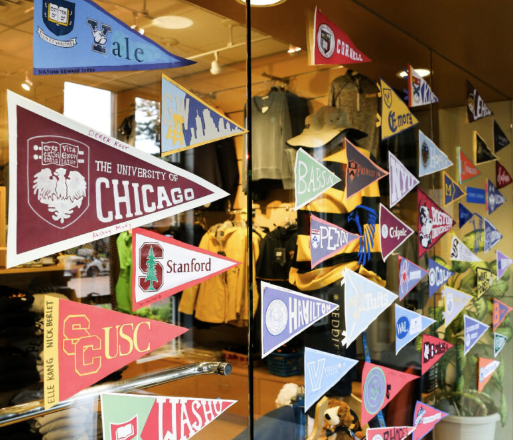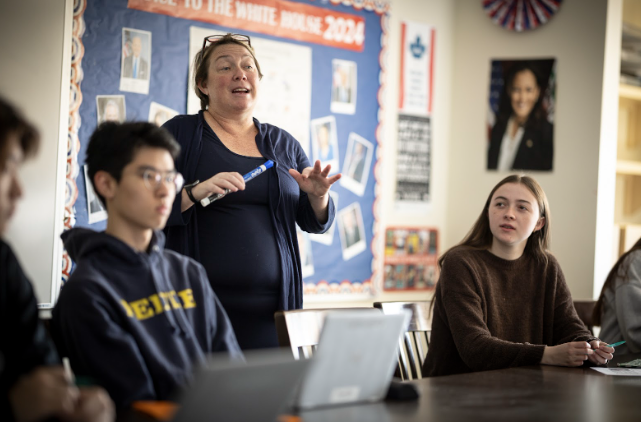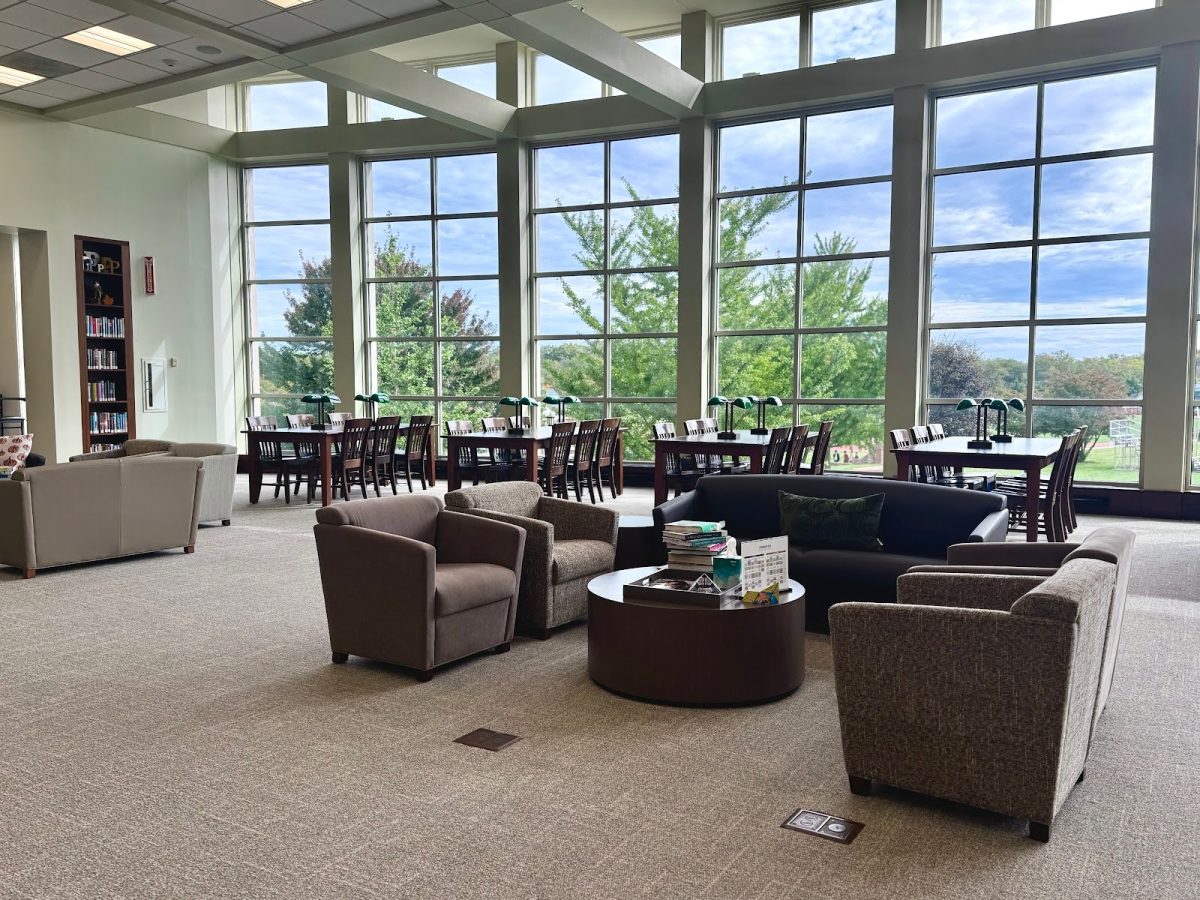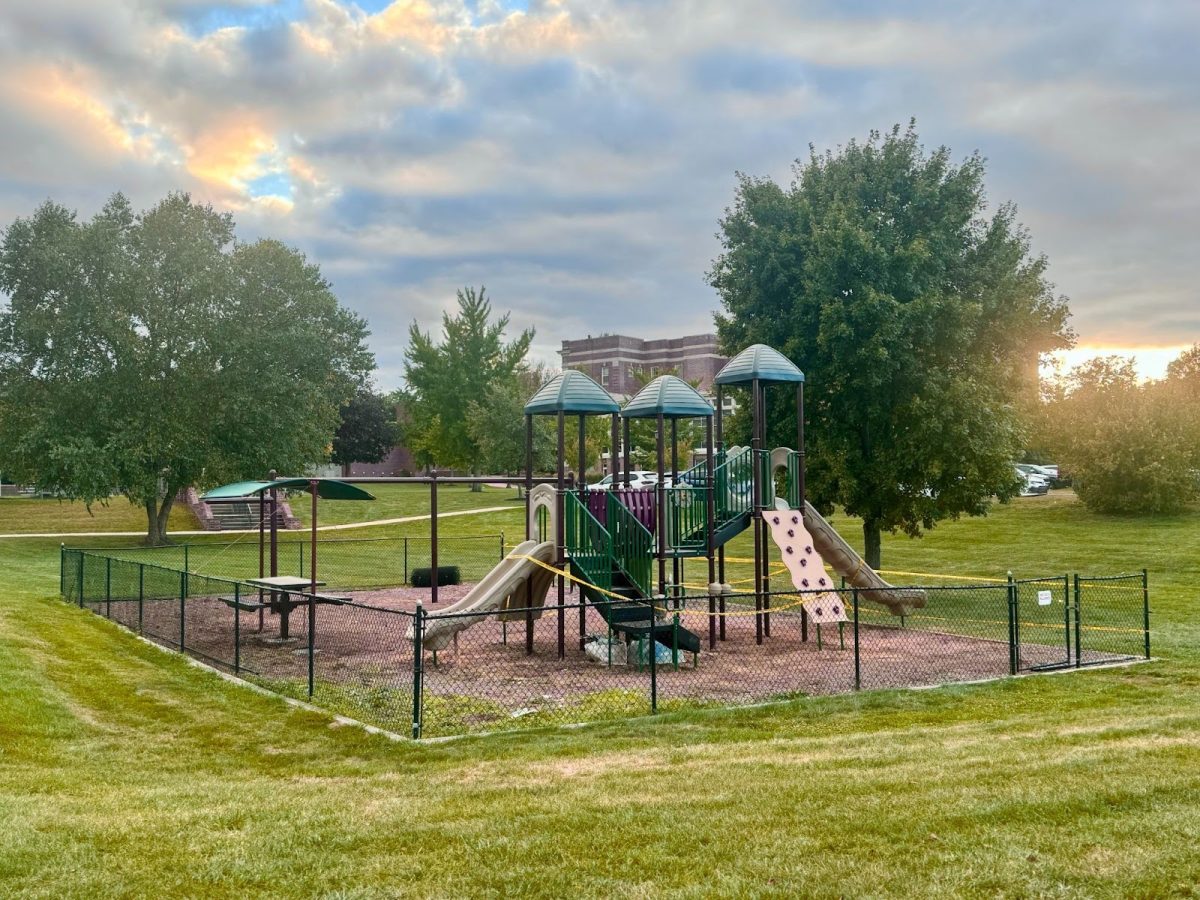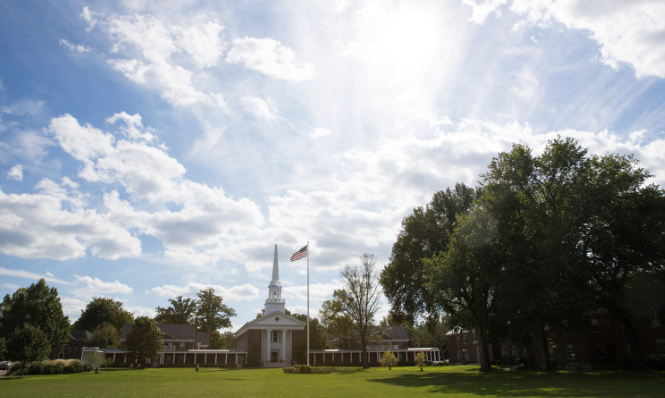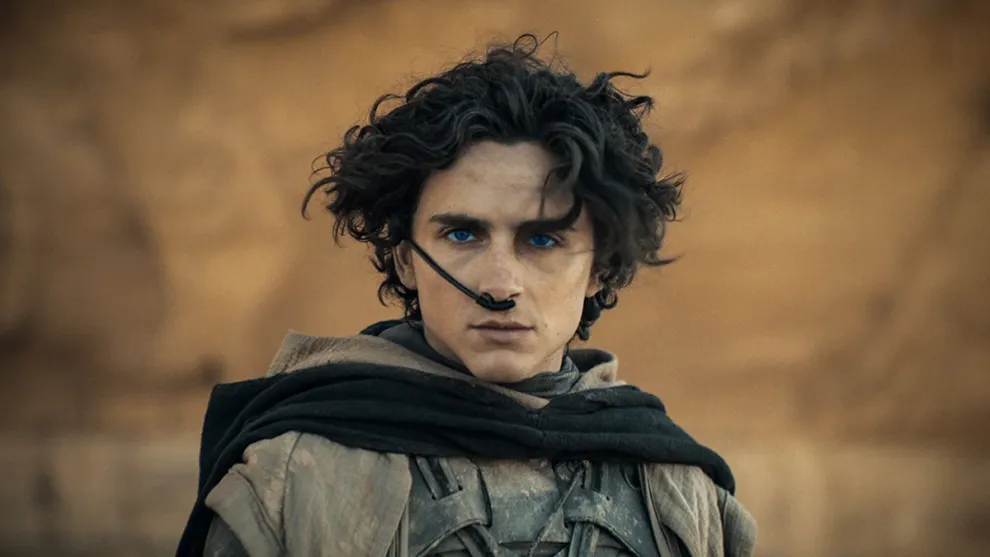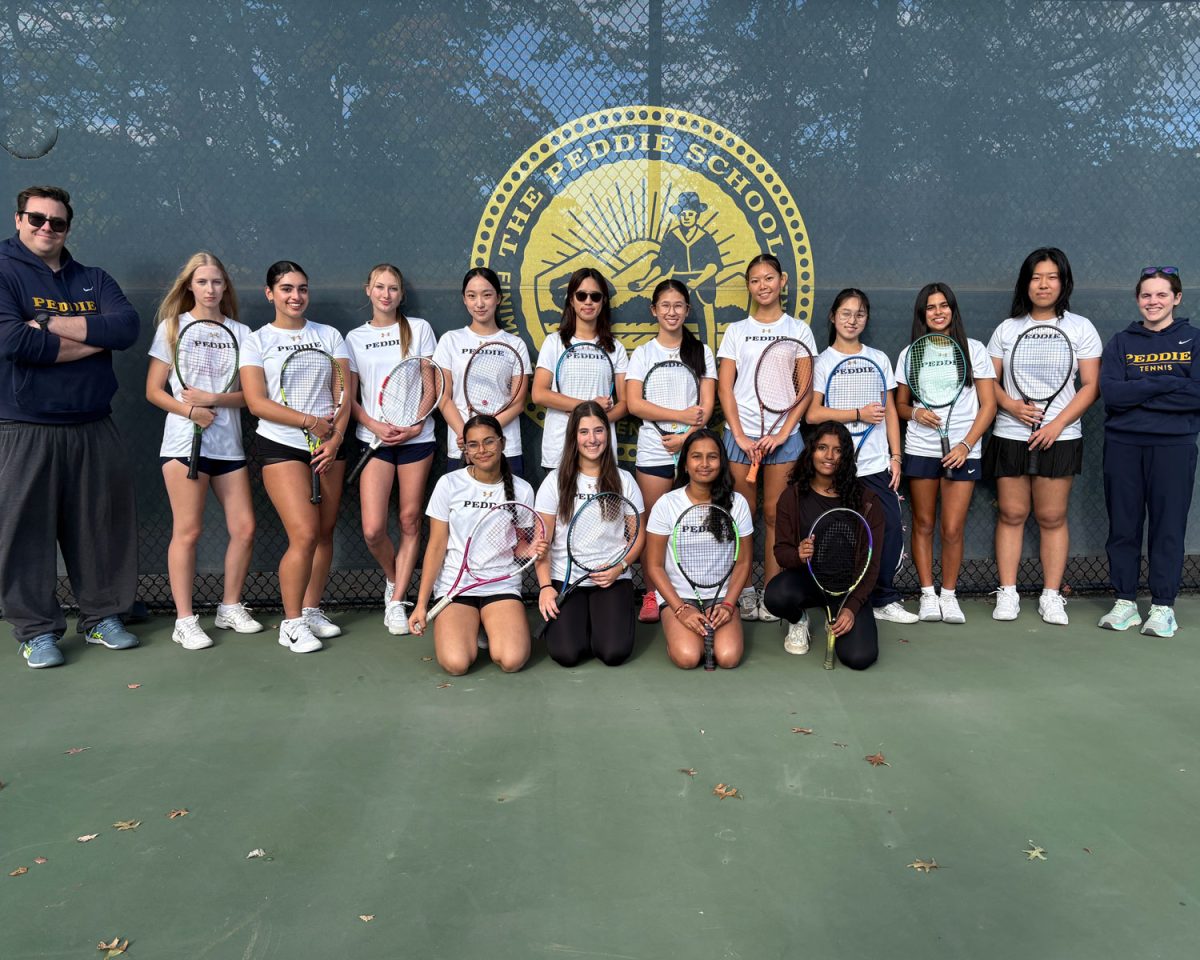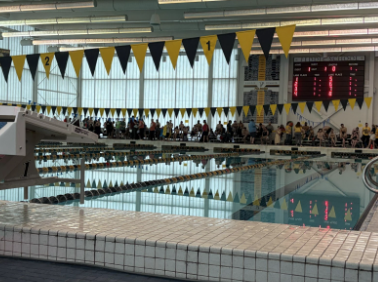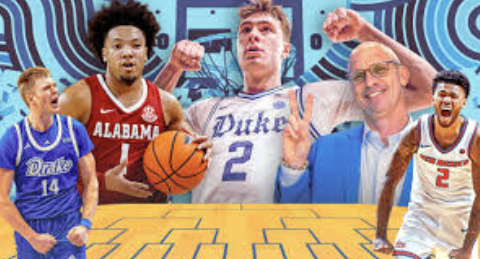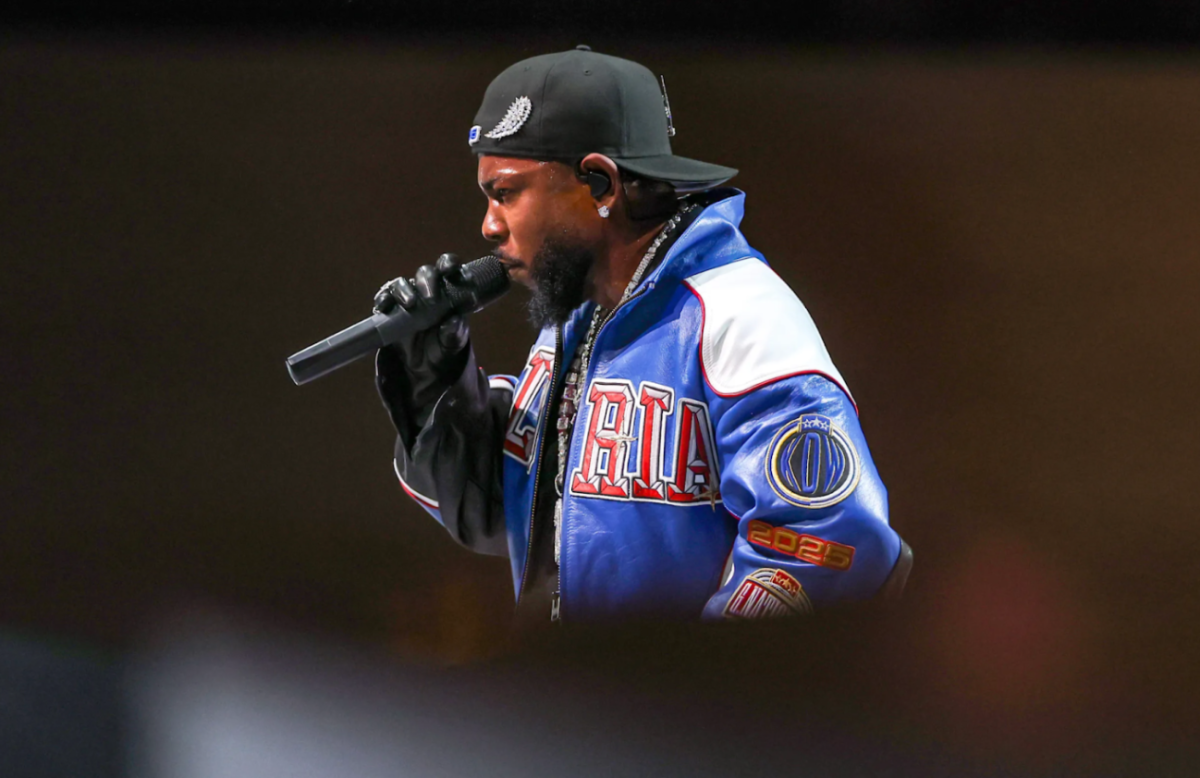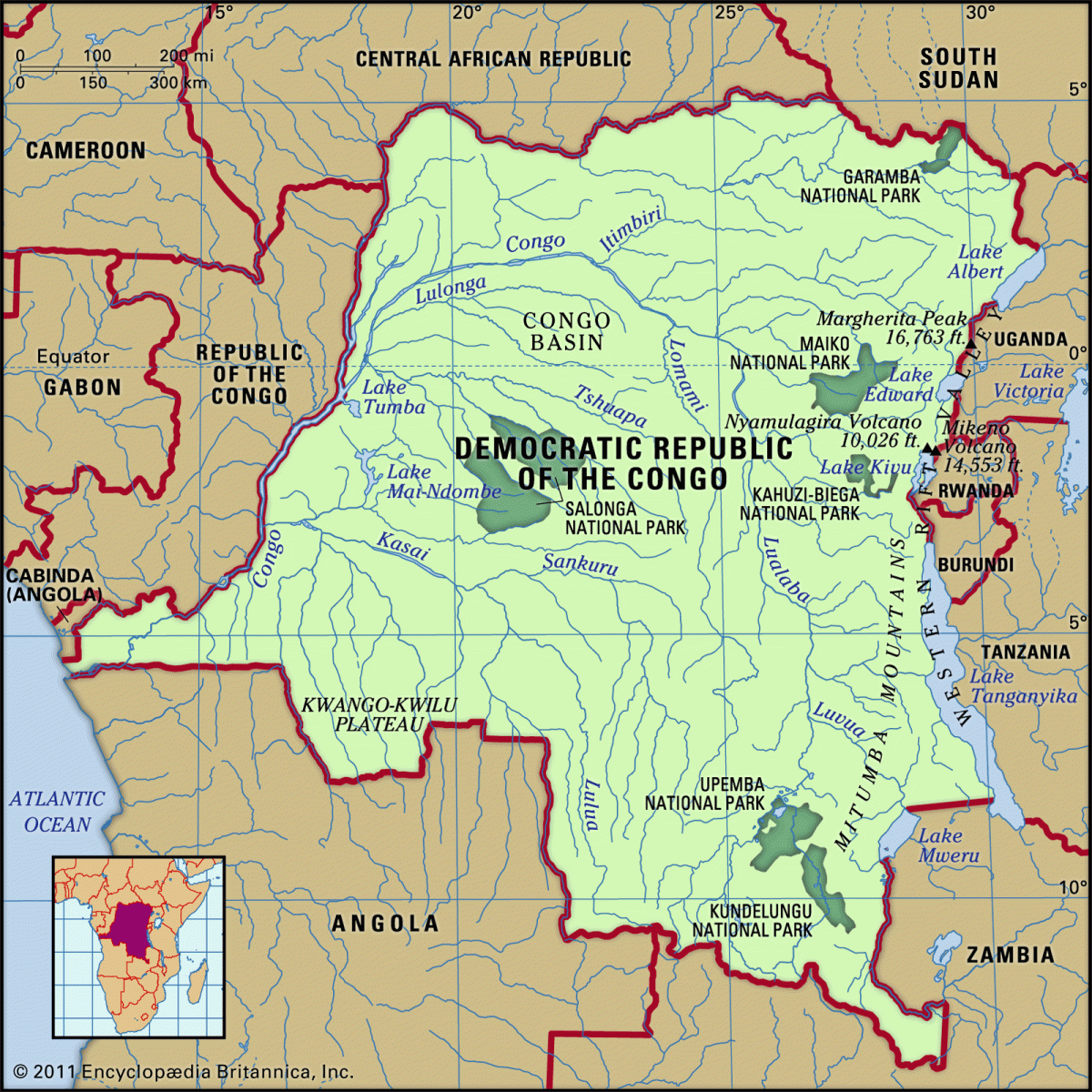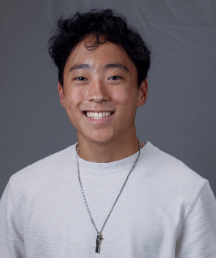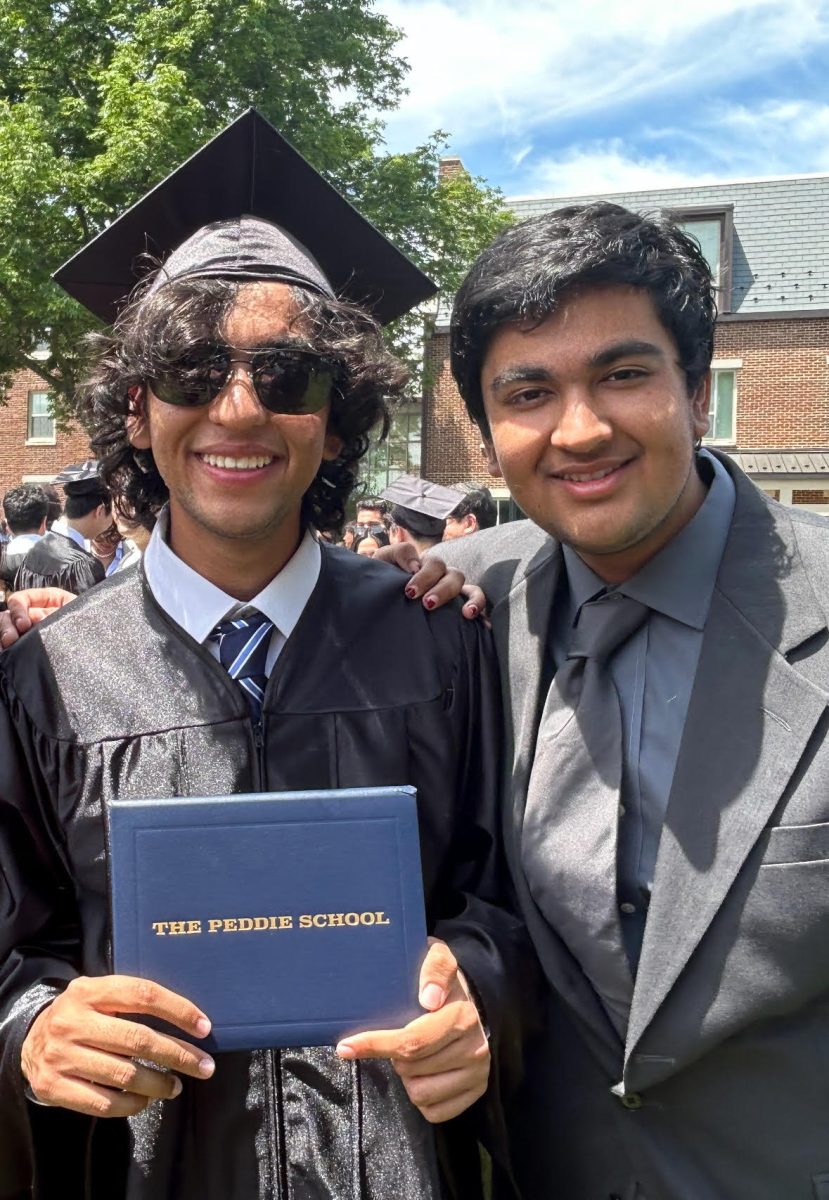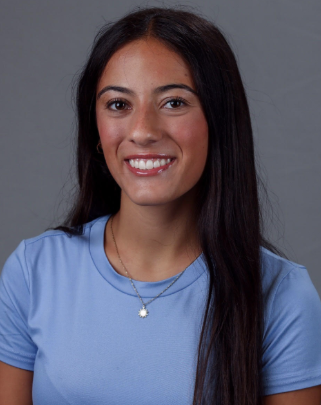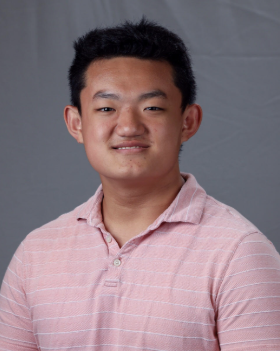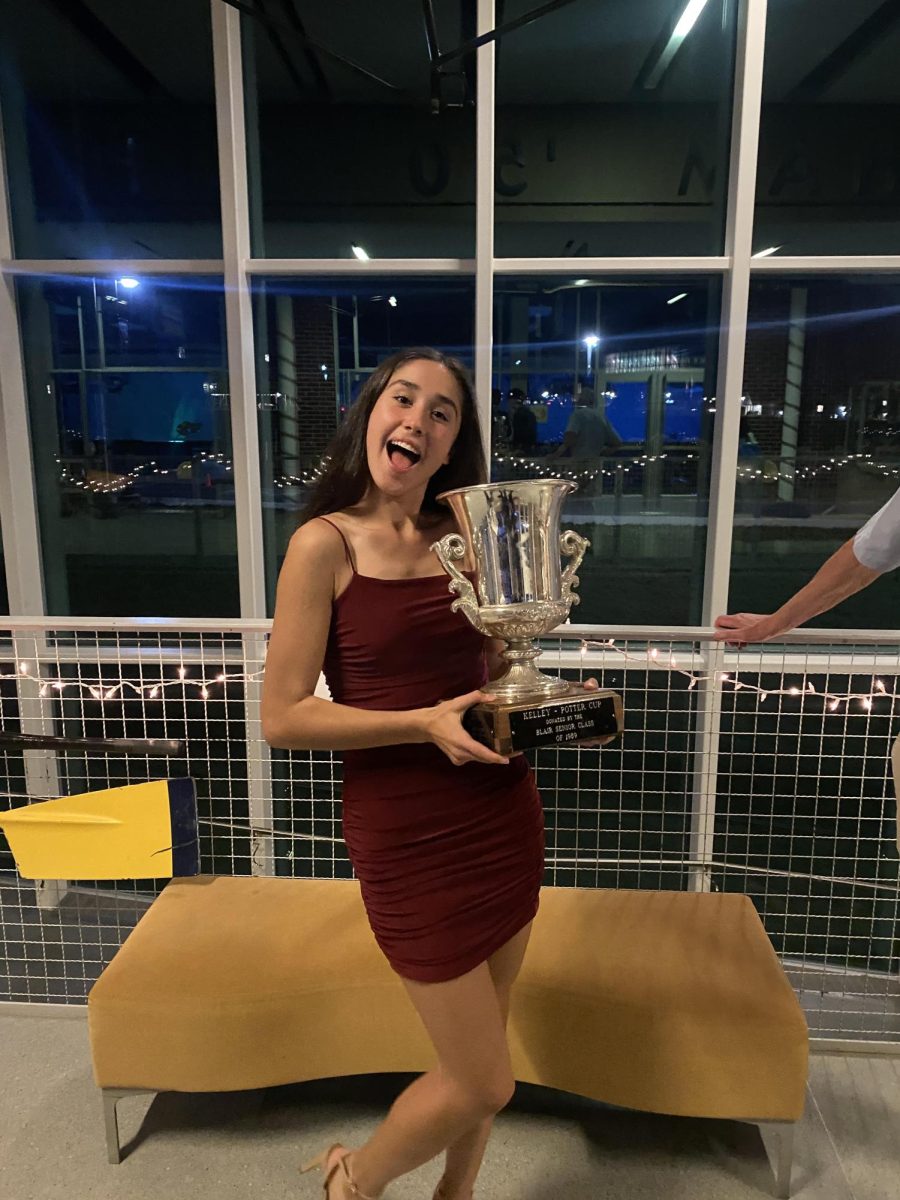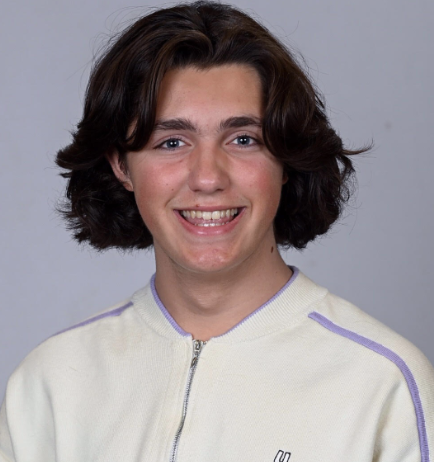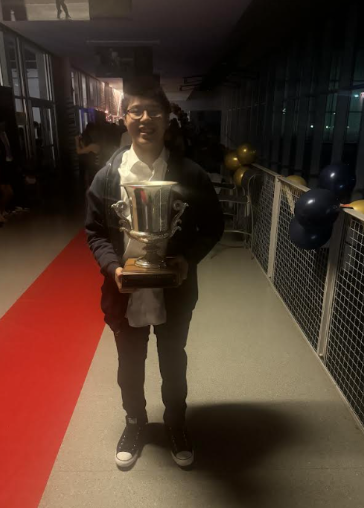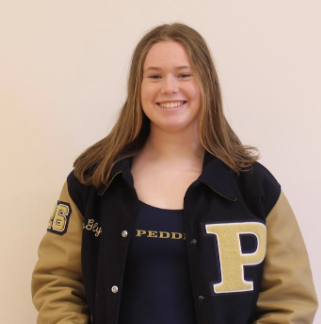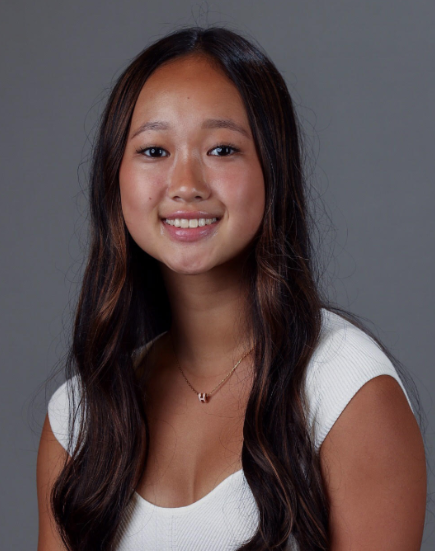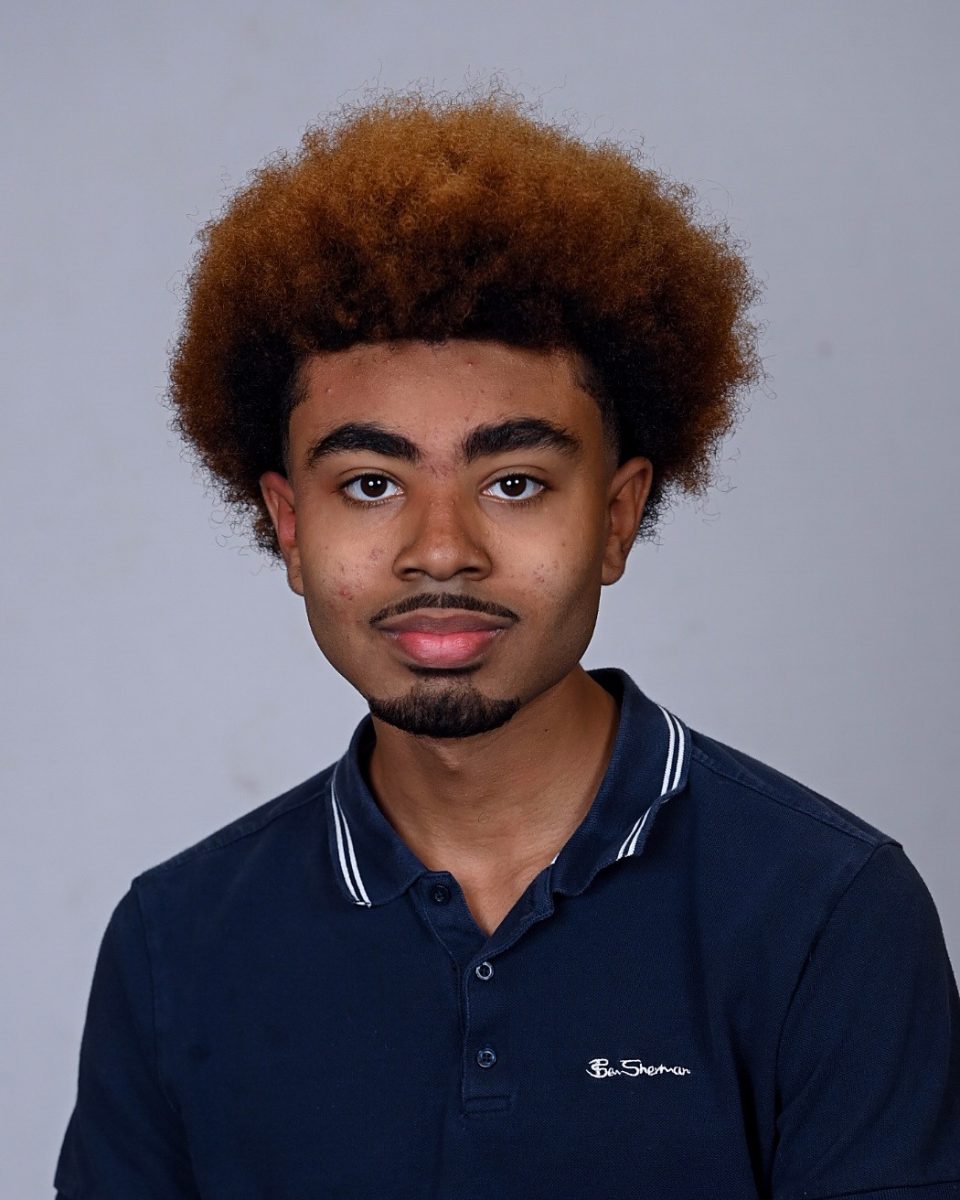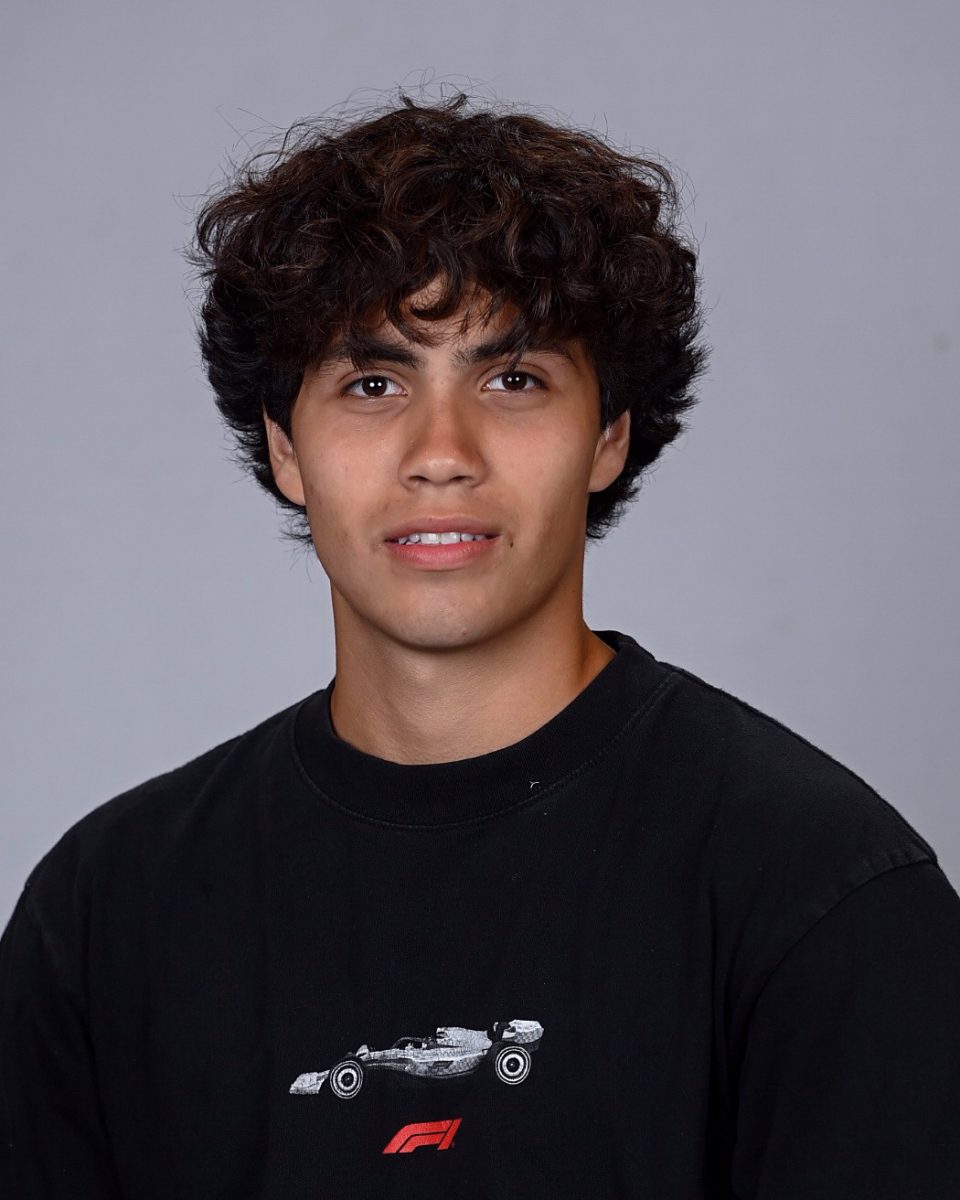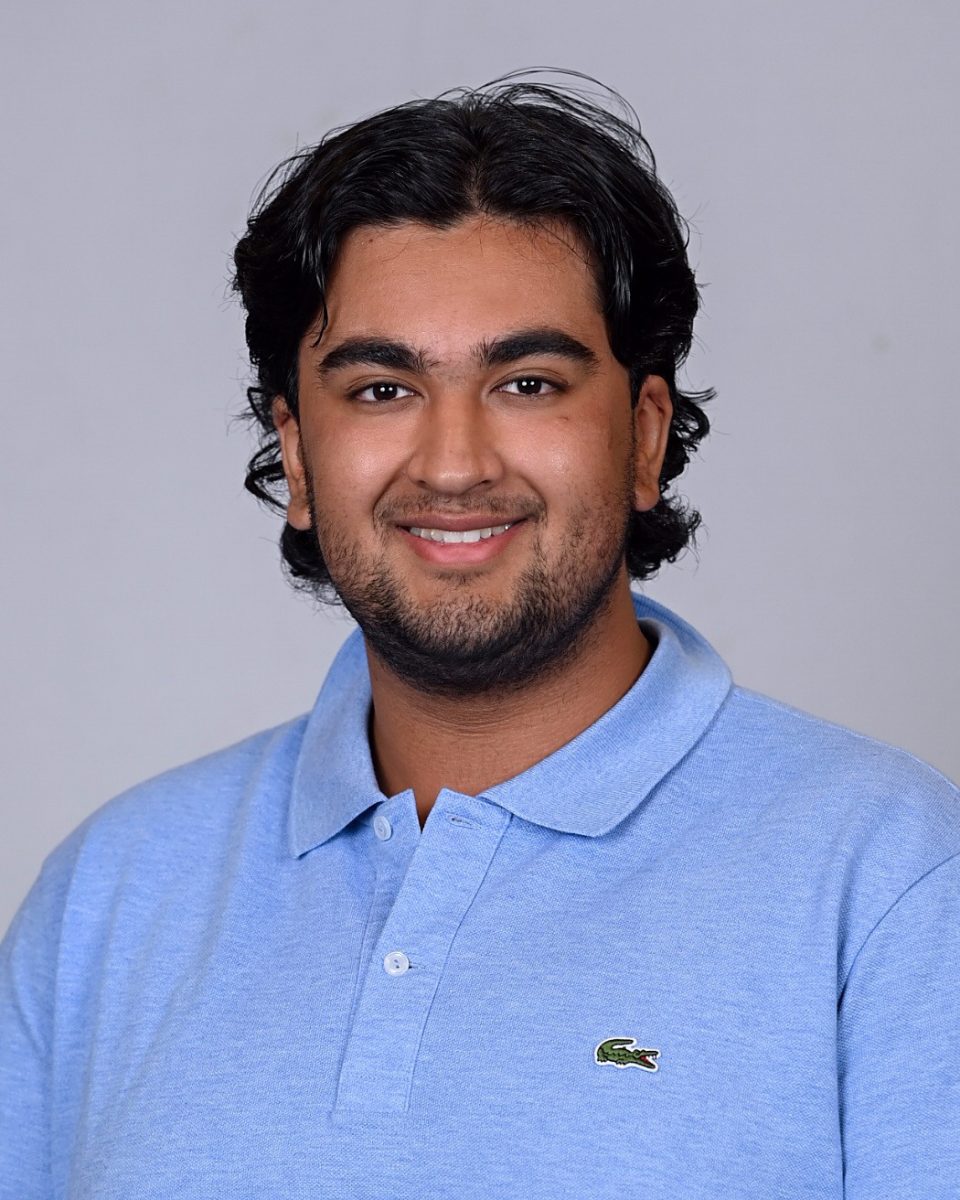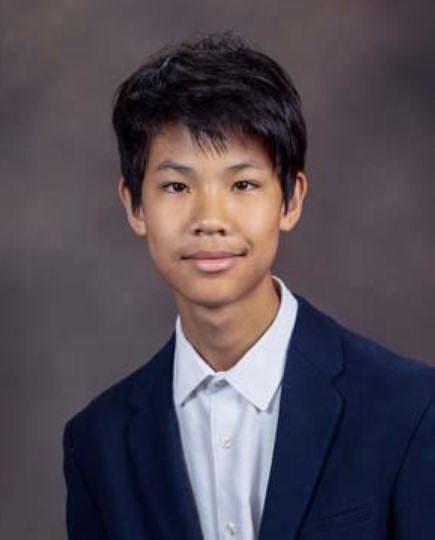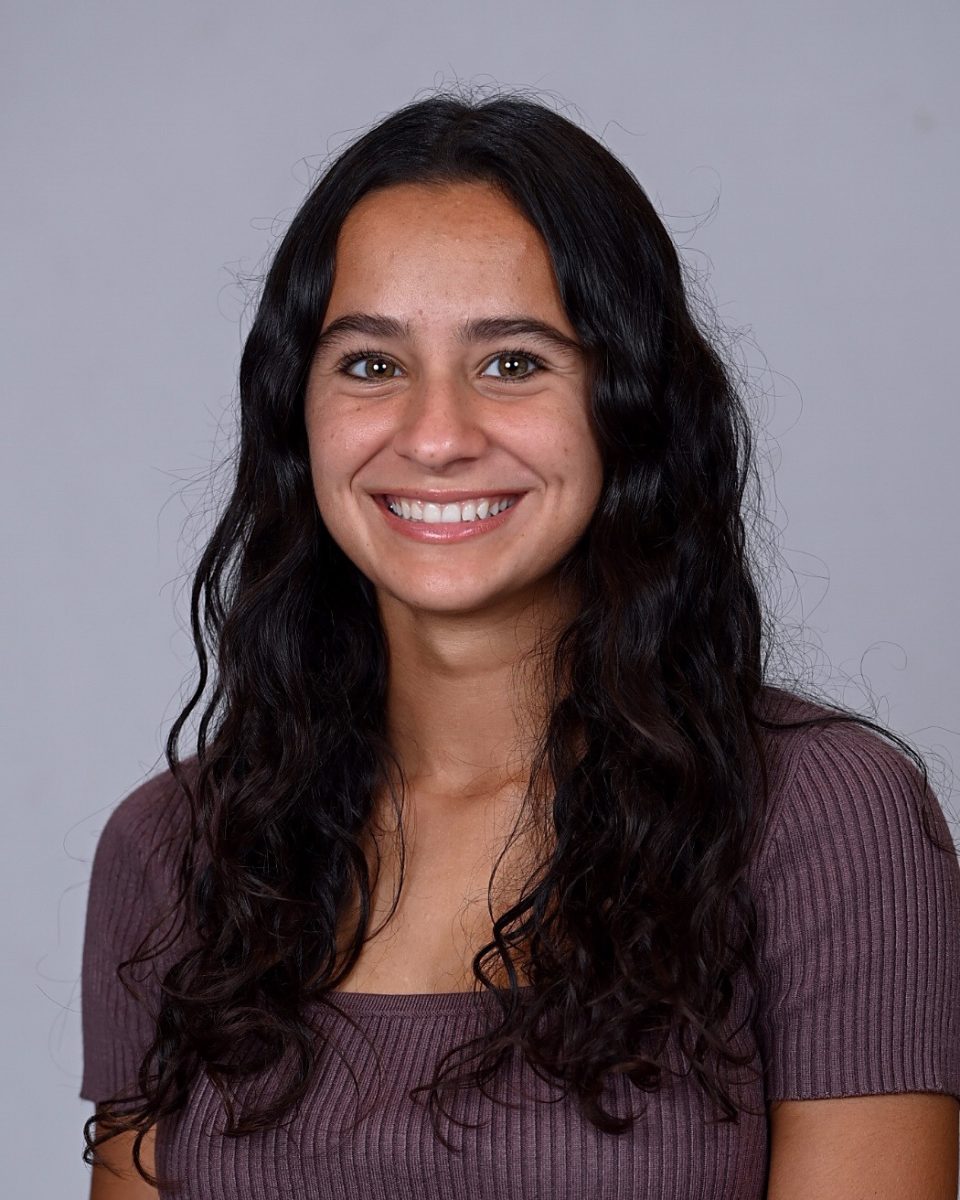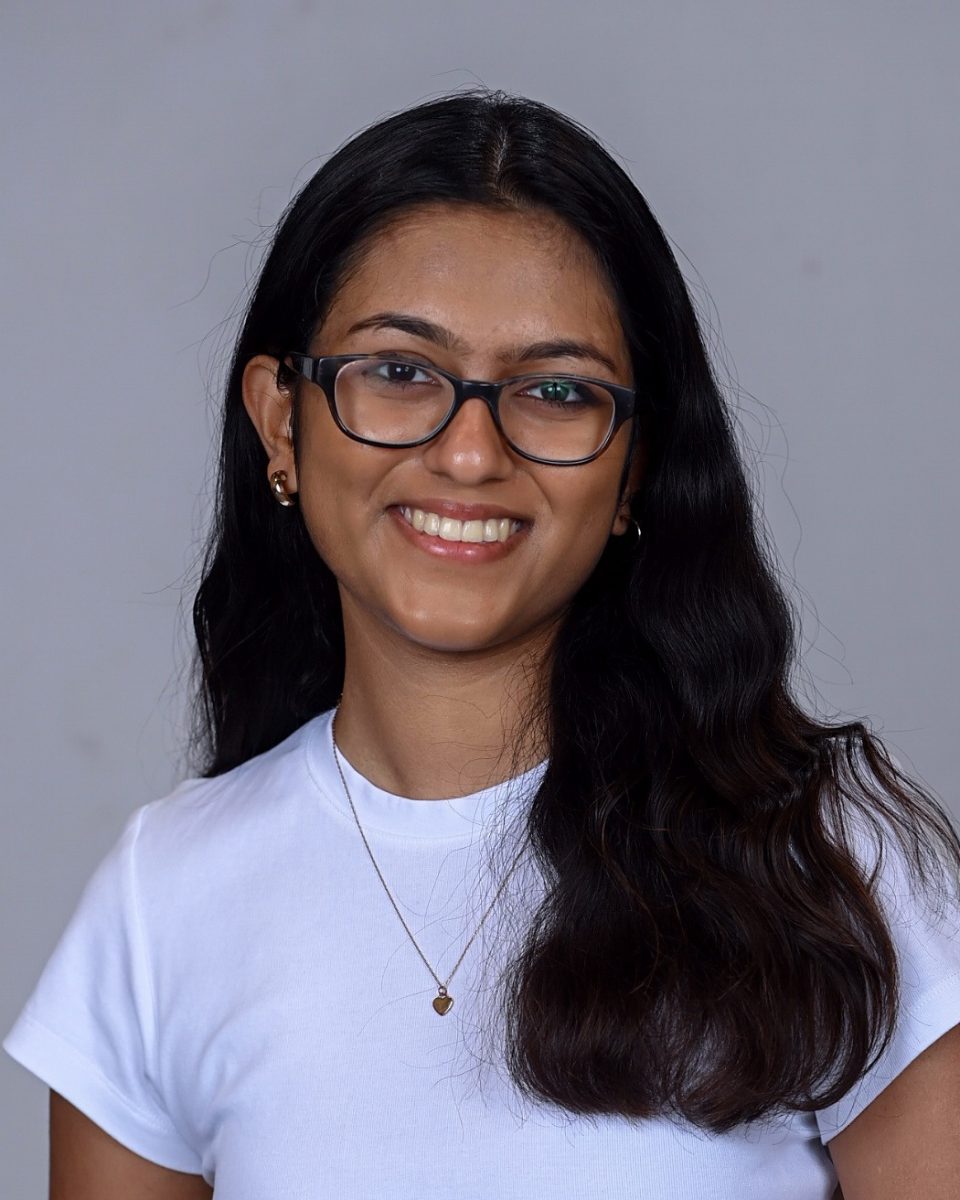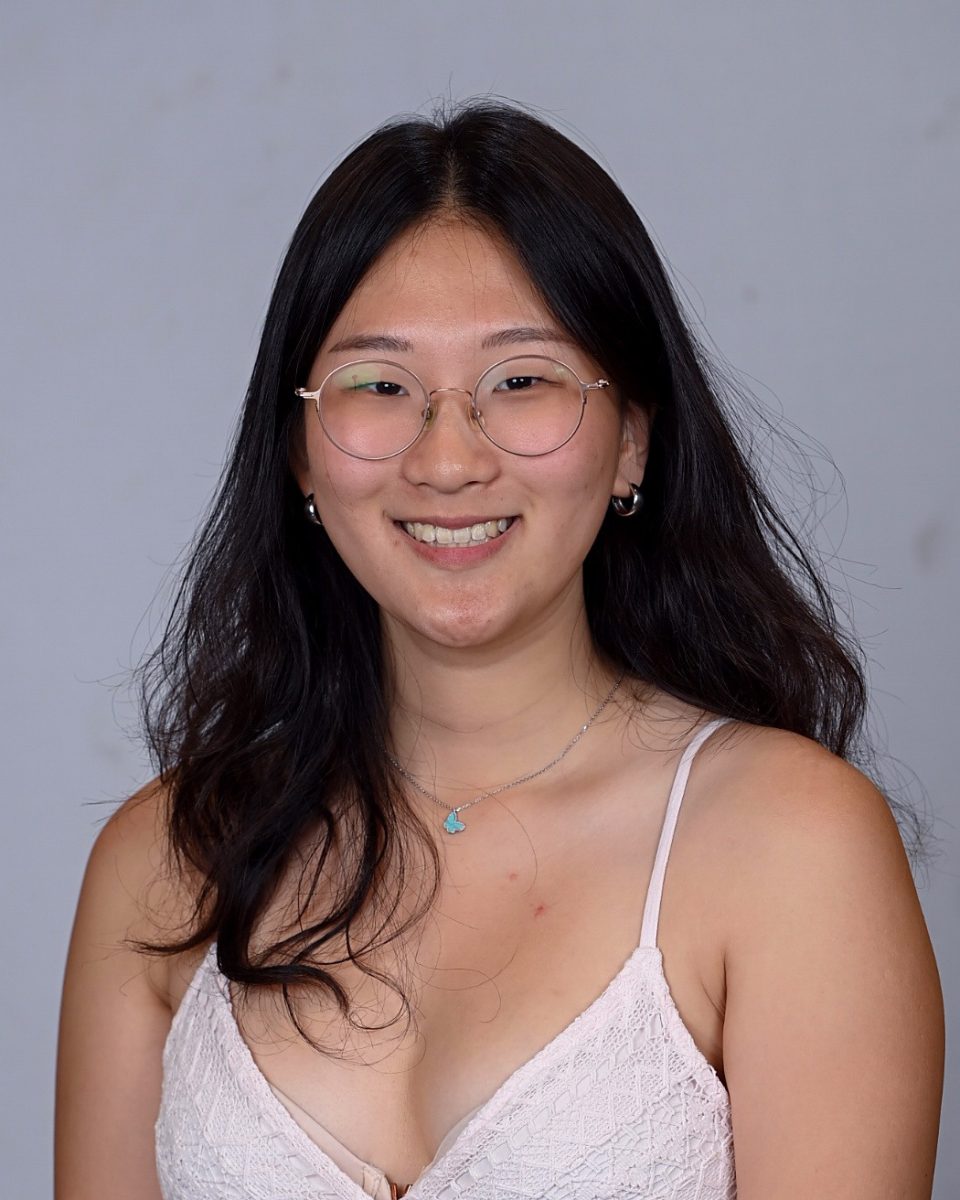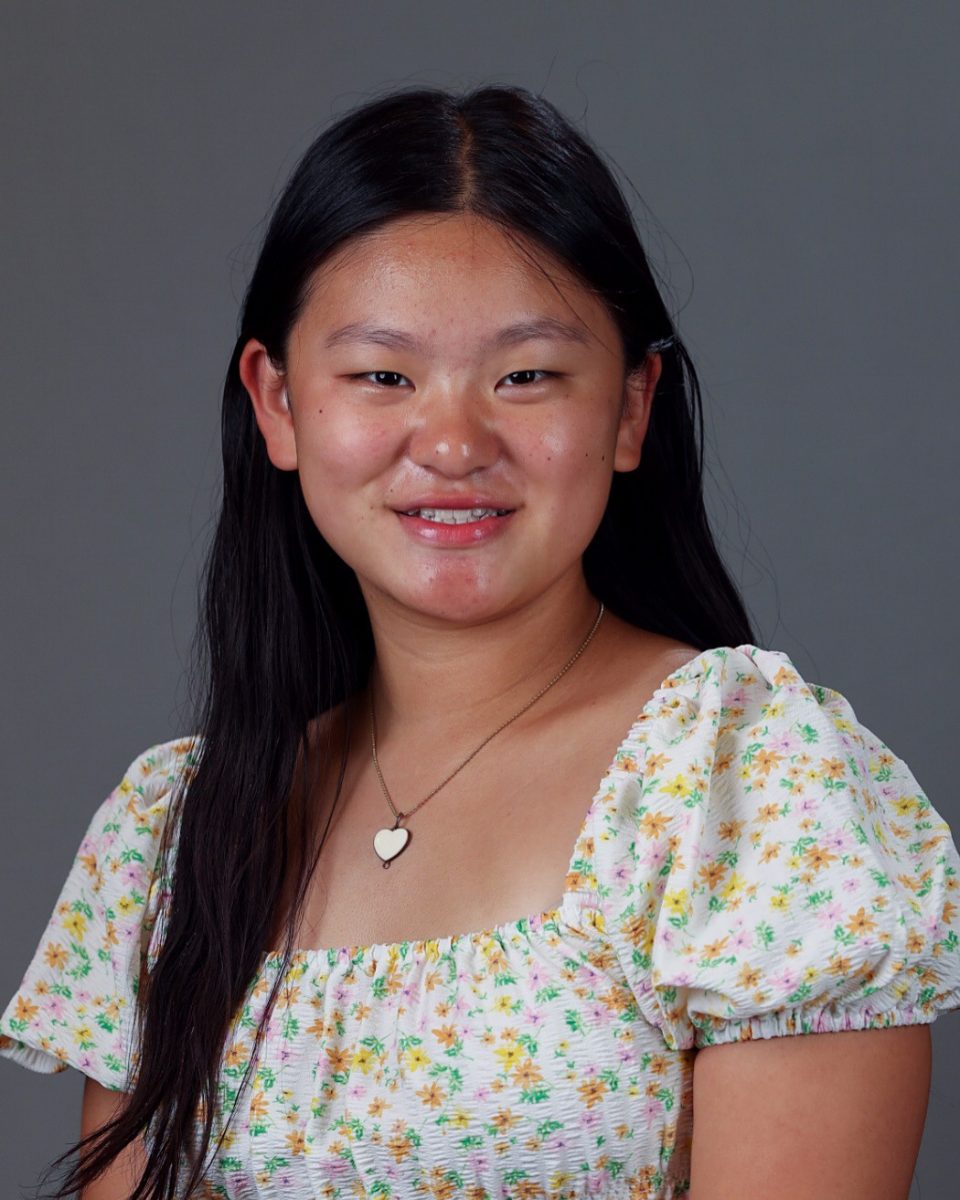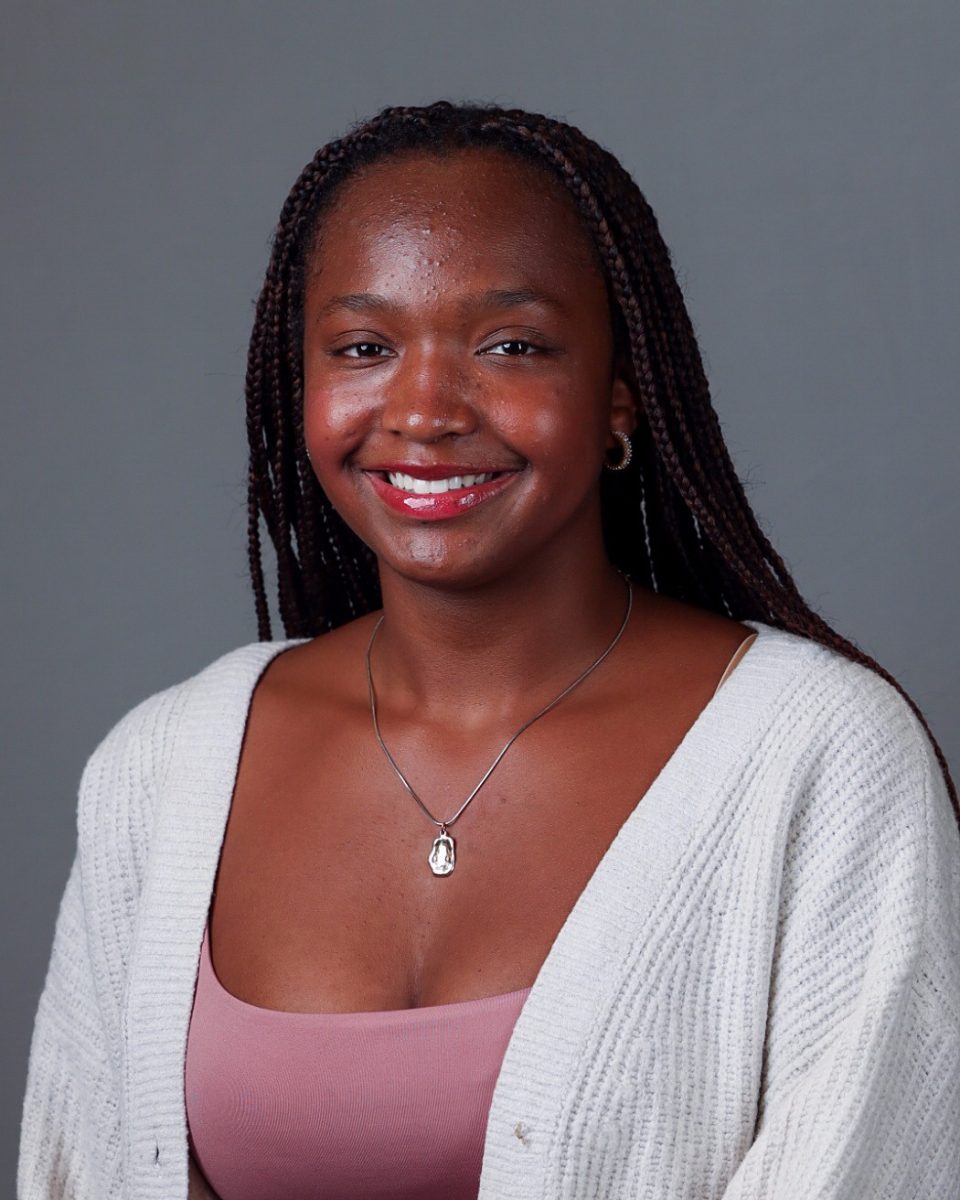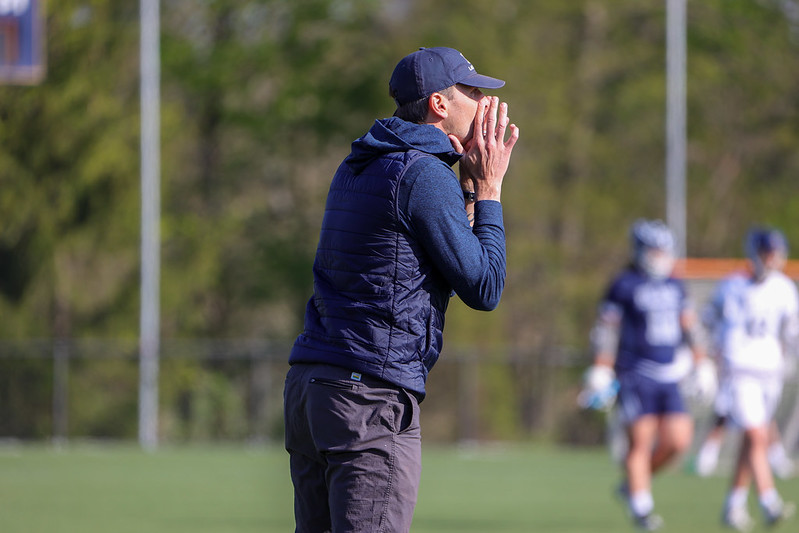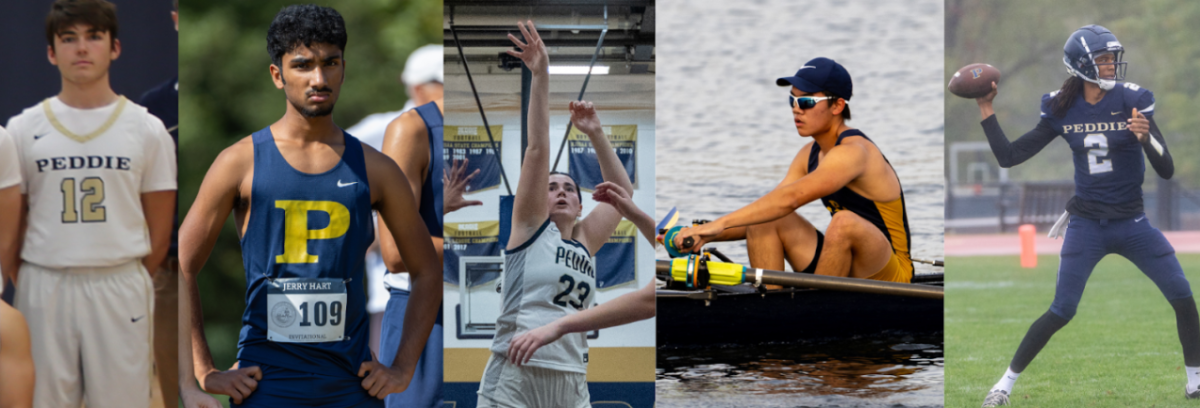I had the privilege of speaking with Mr. D’Andrea: educator, lacrosse player and coach extraordinaire. D’Andrea is a Peddie alumnus who graduated in 2001. As a student, he excelled both academically and athletically. He played both lacrosse and football and was inducted into the Peddie Sports Hall of Fame in 2021. Upon rejoining the Peddie community in 2021, he served as the assistant director of admission and the Boys Varsity Lacrosse coach. As of this fall, Mr. D’Andrea serves as the director of athletics. He also teaches an English course.
Throughout our conversation, Mr. D’Andrea graciously shared some of his Peddie memories as well as the lessons that he’s held onto. He offered insight into several obstacles he’s had to face. He touched on his interests outside of academics and sports and willingly answered my questions.
Here are some highlights from our conversation:
Sophie: You mentioned in your recent Chapel speech that you aim to educate students through athletics. Do you have any specific experiences you can recall about education through athletics?
Mr. D’Andrea: I have lots of memories. The one that stands out was during my senior year, on our lacrosse team. So this was the 2001 team … There was a lot of hardship. Some of the kids on the team were experiencing really difficult things off the field. There was a teammate with a sibling who had passed away. There was a postgraduate who had a best friend pass away. So there were some really challenging obstacles. And so, for us as a team, I remember a lot of energy going into athletics. It was a way for us to be with our teammates as they were trying to cope. Both in the moment and retrospectively, we had some great conversations with one another – people who understood what was happening. Our conversations became a way for us to show up for the people we cared about and help them navigate the difficulties.
Sophie: Do you remain in contact with those teammates from 2001?
Mr. D’Andrea: Yes, I do … That was a special team, a special group of individuals. I was fortunate to be part of that team. We went 16-0 that year. And I think that we were ranked twelfth in the country. There was a group in 1996 that came through here [Peddie] that was also, I think, 16-0 and ranked fourth in the country. e looked up to that group like they were our older brothers, in a sense. Our team, five years later, was such a different team because we had to really fight to win those games. We had to grind it out. It was symbolic of the type of group we had. We had guys that cared about each other and put everything they had into that team.
Sophie: How about your experience as a Peddie student? How would you describe yourself? Did you struggle with or exceed in any particular course?
Mr. D’Andrea: I grew up in Montgomery (New Jersey). I came to Peddie as a re-class freshman, and it was one of the best decisions our family made. I was a pretty hard-working kid, and by all accounts, a good kid. But I remember I had low test scores. I recognized that Peddie was taking a calculated chance on me. I’ve always been grateful for that. I had to work hard when I came to Peddie. I was fortunate to have Mr. Wood as my advisor. Coach Harris*, too, had a profound impact on my time here. The jump from freshman to sophomore year was challenging. I’ve always done better with more humanities-oriented classes, and I was an English major in college. I had teachers who were patient and helped me get through.
*Coach Harris was a Varsity Football coach at Peddie.
Sophie: Did you have any role models: teachers, fellow students, or other members of the community that you looked up to?
Mr. D’Andrea: Yes, lots. My lacrosse coach here was Bob Turco*. Coach Turco was at Peddie for ten or so years. I’m good friends with his kids, and a few of his sons graduated from Peddie. Turco was mentored by Coach Von, whom I mentioned during the Chapel speech. I tried to model myself after those two coaches and absorb some of their positive characteristics. When you go to a place like this, there’s a fair amount of learning that happens. And while I stubbed my toe a few times, I was fortunate to have the support system I did.
*Bob Turco himself was a Peddie graduate, Class of 1970.
Sophie: As a child, how did you envision your career and future? Did life pan out that way?
Mr. D’Andrea: I’ve always loved coaching and working with kids. Even when I was a student here, I remember working at camps – mostly lacrosse camps. But when I was in college, I did work at Teach for America *. There, I worked with kindergarten and first-grade kids. I think I’ve always [leaned] towards education. I did try doing commercial real estate for a while. I did property management for a long time as well. And while I do enjoy some aspects of the business world, this job [educator, director of athletics] fills me up in a way that other jobs haven’t so far.
*Teach for America is a leadership development organization for those who want to co-create a more just world alongside young people in their communities.
Sophie: Why did you choose to study English in college?
Mr. D’Andrea: Well, I started at the McDonough School of Business at Georgetown, where I also played lacrosse. In my freshman year, I was taking classes like Accounting and Statistics and Econ, and I was miserable. I just really didn’t connect with [those subjects]. One of my required core classes was an English course taught by Maureen Corrigan. She appeared on NPR’s “Fresh Air.” I remember just falling in love with the course. I wanted to have the same appreciation for literature that she did. That appreciation had been bubbling underneath, and suddenly it made sense. I then began taking more English courses and loved it. Literature speaks to me in a way that nothing else does.
Sophie: Do you have any specific books you connect with more than others?
Mr. D’Andrea: I think it depends on where I’m at in life. I remember reading Hamlet in high school and not loving it, not entirely understanding it. Then, in college, I read it again and began to enjoy it. Later, when I had kids, the story took on a whole new meaning. I am also fascinated by Betty Smith’s “A Tree Grows in Brooklyn.”
Sophie: Can you identify your greatest strength and your greatest weakness?
Mr. D’Andrea: You know, I can’t quite put my finger on [my greatest strength]. But what I would say is this: I know that I don’t have all of the answers. By recognizing that, I’m able to create a great network of people around me who can provide advice. In other words, I’m a connector. As for my biggest weakness, it’s my inability to say “no” at times and spreading myself too thin. I’ve realized that it’s important to check in with yourself and make sure you’re not trying to take on too much.
Sophie: I agree. It can be difficult to strike a balance between work and play. And to remind ourselves how fortunate we are here at Peddie, with so many opportunities. It’s just a matter of figuring out how to seize as many of them as possible.
Mr. D’Andrea: It’s a balance for sure … taking advantage of it all in healthy ways.
Sophie: Why did you decide to come back to Peddie?
Mr. D’Andrea: I felt that I wanted to repay the community that has done so much for me. My time here as a student was transformational; I was put on a different path. Also, I feel lucky to be back here now because I can capture some of the experiences that I might have missed while I was a student.
Sophie: Switching topics. How do you pick yourself up after a rough day?
Mr. D’Andrea: Connecting with other people is important. When I get into tough spots in my life, it’s typically because I’ve tried to fix a problem on my own. As a pretty private person, I’m inclined to deal with things on my own. Over time, I’ve recognized the importance of reaching out to others. I’m fortunate to have a big safety net of people who help me persevere. It’s taken me a long time to learn that lesson.
Sophie: What is the most difficult thing you’ve had to do?
Mr. D’Andrea: I’ve had difficulty in recognizing what is beyond my control. I’ve struggled with depression and the guilt and shame associated with that. Learning to develop a support network and connect with others are some of the most challenging things. It’s taken me time to get that. I try to model vulnerability because that allows [me] to be a resource for others. It’s been rewarding to have people come to me when they’re upset or need help and say, “Hey, look, I’m really struggling right now.”
Sophie: What’s the kindest thing someone has done for you?
Mr. D’Andrea: I think time is our most precious commodity, and I think that the kindest thing people can do is give you their time. That could be in the classroom, on the lacrosse field. It could be during advisory. The older I’ve gotten, the more I’ve understood the precious nature of time. And I’ve come to appreciate those moments where I can be with others.
Sophie: If you could be a fictional character for a day, who would you be?
Mr. D’Andrea: (After a lot of internal deliberation) A character in Hamlet, maybe. As insane as it sounds to want to be a part of a tragedy, I’d like to see what the characters saw through their own eyes. I’d like to discover the answers to questions readers are left with after the story ends.
Sophie: If you could witness any historical event, which one would you want to witness and why?
Mr. D’Andrea: I think I’d want to go to the Globe Theater and watch an original performance of Hamlet. I’ve been fascinated by that play lately, based on where I’m at in life right now. Or go back and view the original Olympics or the very first lacrosse games.
Sophie: What is your idea of an amazing day? Who would you spend it with? What would you do?
Mr. D’Andrea: We’re really fortunate to have family nearby. My parents are at the beach, and so are my in-laws. I’d want to spend the day with my wife and kids, probably at the beach. But we also enjoy hiking. I think it’d have to be the beach, though, because I love the water. I’m in the water a whole lot. I love to paddleboard.
From his responses, it is evident that Mr. D’Andrea places a high priority on community and togetherness. He cares deeply for his students, athletes and mentees. Grit, modesty and self-awareness are central to his character. I owe a massive thank you to Mr. D’Andrea, who readily indulged in my questions.

